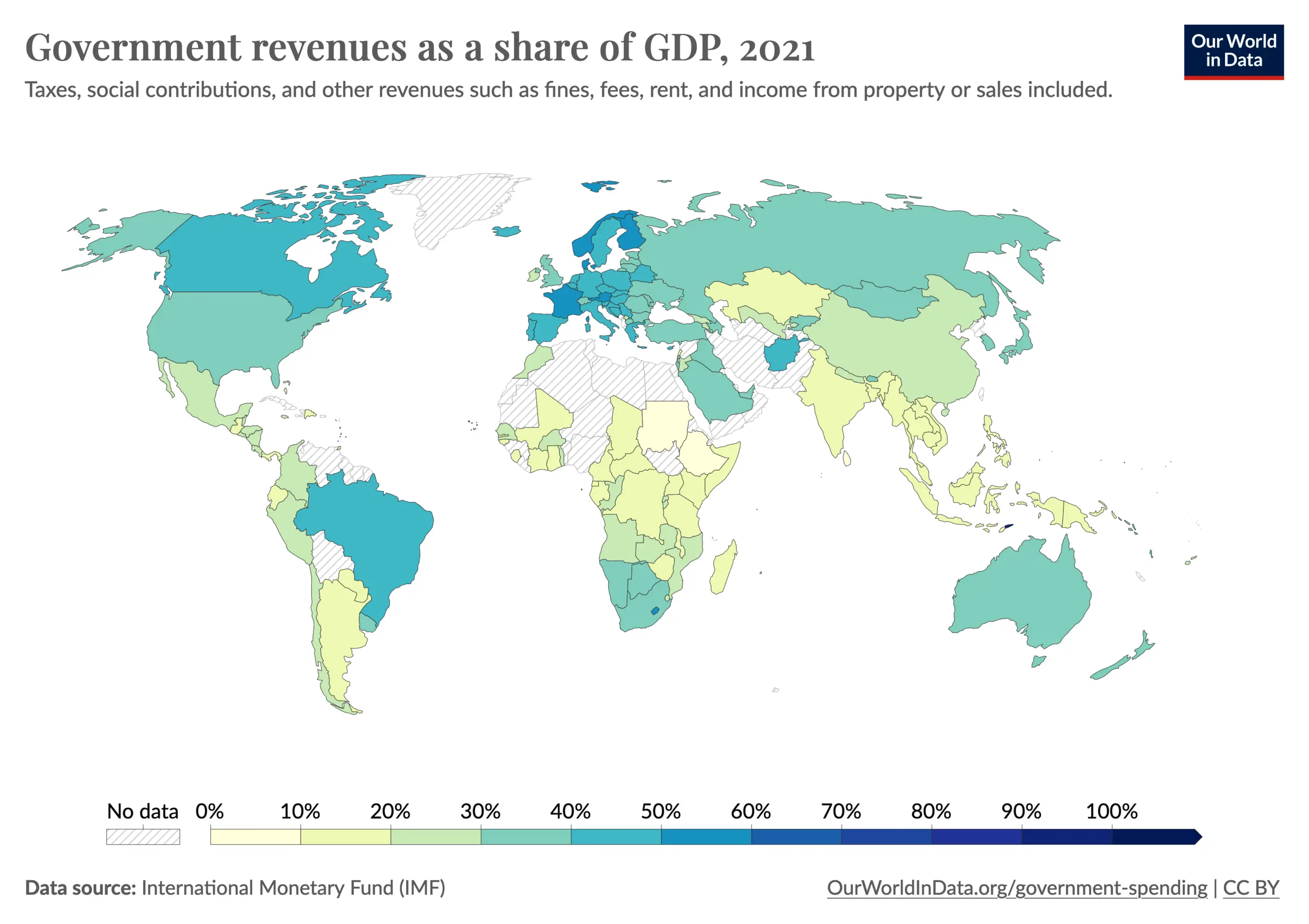I think I’ve heard that the USA federal gov is bigger than in the past, as in controlling more of an American’s life than in its history. Is it like government revenue divided by gdp? What about minting?
US are actually a good example of the limit of small government. Not having a mandatory government owned health insurance show low taxes on paper. But average people and companies still need to pay a lot for health insurance. Replacing a tax, by a de facto mandatory payement still means that people don’t have disposable income.
Even in European democracies with high taxes and strong government the control on your life isn’t that big. Yes you may need a municipal permit rather than a HOA permission or may have a government employed University Dean telling you that you fail the medical school admission test rather than a private bank telling you the same. But in both cases, the government looks like the best option
As someone else stated there’s really no way to answer this without specifying in what way. The federal government is bigger in some ways and greatly lacking in others. And the amount of finances or revenue isn’t going to tell you the size of the government. It just tells you what one of it’s resources is. I would argue that if you aren’t in an area that’s trying to enforce religious rules/laws the average person likely has more freedom in the past. Obviously based on the demographic that might not be true though.
The very idea of “big” and “small” government is right wing American framing to produce right wing American results. If you’re talking about abstract garbage you aren’t talking about whether an action is helpful or harmful, what results are good and bad, etc. The idea is a scam.
Thank you!
And the reason they want “small” government so much is what they are really after is being able to do more criminal activity, toxic pollution, price gouging, exploitation, collusion, monopolization, market control, tax evasion, you can continue with a hundred more filthy tactics they engage in.
When they say “small government” they mean “we want to steal cheat lie and exploit, and we want you to shut up and let us. That’s why we go into business.”
Government spending/revenue as percentage of GDP is the common proxy for government size. That said actual empirical evidence doesn’t lead to clear cut conclusions about the relationship between economic growth/outcomes and government spending. It’s very much dependent on the country, quality of government institutions and components of the expenditure.
Intuitively, you can clearly see that if you had 2 identical countries where 50% of gov spending went to building schools, hospitals and roads in one and paying interest on national debt in the other then you would expect very different outcomes with the same government “size”.
For the US, that metric has been close to 30% for the last several decades with spikes during crises like 2008 and 2020 (changes to money supply or “minting” is a component of government size but usually a temporary one). It’s been relatively stable outside of that since the 1970s. https://tradingeconomics.com/united-states/government-spending-to-gdp
Relative to the rest of the world’s rich countries it’s on the lower end:

In my view, it’s highly dependent on the quality of the government institutions and components of spending. People immediately think of inefficiency and bureaucracy when governments are brought up but there is empirical evidence to show that gov spending on things like education and infrastructure are usually “productive” in additional to contributing to factors that may not be properly captured by measures like GDP growth.
In short, people reducing government spending/regulations as inherently bad/controlling are at least not being completely honest because it’s a very complicated discussion.
I think I’ve heard that the USA federal gov is bigger than in the past, as in controlling more of an American’s life than in its history.
My first thought was they this is really two separate questions but the I realised a stat like this might answer both:
the number of public sector employees as a percentage of the total workforce.
- If we view government’s role as intruding on our freedoms and controlling our lives (I don’t), then the more people they employ the more able they are to assert that control.
- Its the ratio of the workforce that have their working hours dictated by government, its hard to be more controlling that that.
(Its not considering the non-working population, and with variations to lifespan, unemployment, etc that may be relevant … I don’t know.)
And international comparison is available here:
https://en.wikipedia.org/wiki/List_of_countries_by_public_sector_size
For a 30 year historical comparison of US federal data see figure 1.1 here:
Who is bigger: Meatloaf, Kareem Abdul Jabbar, or Taylor Swift.
There are a variety of ways to measure the size of things and you’d likely want to use one of the metrics that corresponds to your interest - do you care about the overall budget? Maybe about the number of incarcerated people per thousand?
It really depends what you want to measure.
Meatloaf.
Ah, so you’re measuring by “biggest star”.
Or the most important metric: how many times have they been in RHPS.


